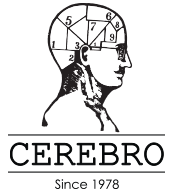Product Details
A short cigar label biographical essay taken from www.from-ireland.net/history/robertemmet.html. all the heroic martyrs to be found in Irish history, none can compare in popularity with the romantic martyrdom of 'the bould Robert Emmet, the darlin' of Erin'. His, was probably one of the greatest speeches made from the dock by a condemned prisoner. He ended it thus: "Let no man write my epitaph.......Let my memory be left in oblivion and my tomb remain uninscribed until other times and other men can do justice to my character. When my country takes her place among the nations of the earth, then, and not till then, let my epitaph be written. Robert Emmet was the seventeenth and youngest child of Dr. Robert Emmet and Elizabeth Mason of Dublin. They lived at 124, St. Steven's Green, Dublin. Five previous sons had been called Robert and of the seventeen children only three boys and one girl survived. Robert was educated in Samuel Whyte's academy in Grafton Street (located where Bewleys Cafe now stands). He entered Trinity College at the age of seventeen and there began two great friendships. The first with Thomas Moore, who later immortalised him in poetry and song, and the second with Richard Curran, to whose sister, Sarah, he became bethrothed. He was expelled from Trinity College in 1798 for holding radical political views and he then joined the newly formed United Irishmen To the ordinary people, Robert Emmet was a hero, but to the civil authorities of the time, he was another young Irish traitor, a misguided young man of respectable background who had chosen to challenge Dublin castle by appearing one night in Patrick Street dressed in a General's uniform and making himself the centre-piece of a crowd (of thugs and drunks!). One victim that night was a humanitarian, Lord Kilwarden who was the Lord Chief Justice. His coach was surrounded by the mob and he was piked to death! Emmet did not know of this until later. Thirty people lost their lives that night. The British authorities later admitted that his so-called rebellion was 'as formidable in it's preparation and means of doing mischief as any in history.' It has been said that if it were not for a series of unfortunate set-backs, Emmet's valient effort of July 23rd, 1803, might well have changed the course of Irish history.
 View Cart {{shoppingcart.totalQuantityDisplay}} Item(s)
View Cart {{shoppingcart.totalQuantityDisplay}} Item(s)
 View Cart {{shoppingcart.totalQuantityDisplay}} Item(s)
View Cart {{shoppingcart.totalQuantityDisplay}} Item(s)
